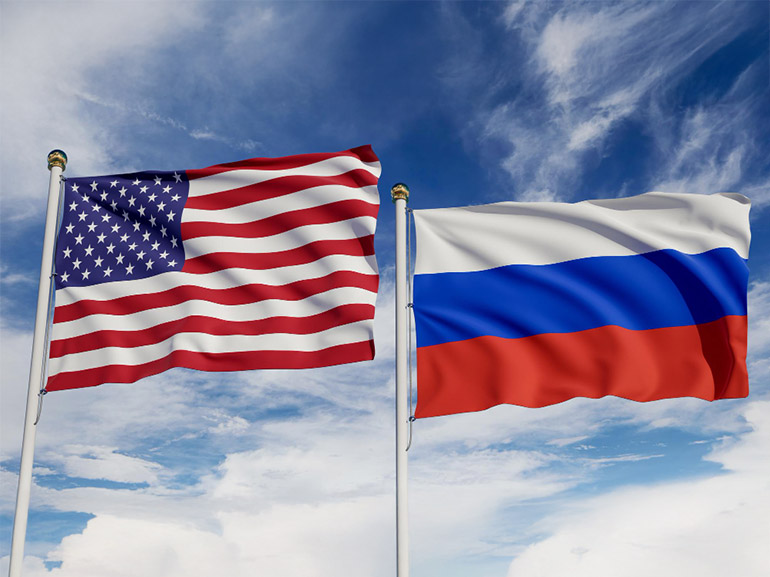Big Tech Stocks: What Are FAANG, MATANA & the Magnificent 7?
Meta, formerly known as Facebook, Amazon, Netflix, Apple, Alphabet, NVIDIA, and Tesla, are considered some of the most renowned and popularly traded companies in the world.
Aside from being American and belonging to the tech sector, these companies have other commonalities and even share mutual acronyms- FAANG, MATANA, and Magnificent 7.
However, while FAANG and MATANA were popular terms in the past couple of years, more recently, some analysts and market watchers seem to have replaced them with Magnificent 7 stocks.
So what are FAANG, MATANA, and Magnificent 7 stocks exactly, and what are the differences between each term? Here’s what you need to know:

TL;DR
FAANG refers to the top 5 most popular tech stocks in the world (Meta, Apple, Amazon, Netflix, and Alphabet.
MATANA refers to the popular tech companies Microsoft, Apple, Tesla, Alphabet, NVIDIA, and Amazon.
Magnificent 7 describes the shares of seven of the economy’s leading stocks, including Meta, Apple, Netflix, Amazon, Alphabet, NVIDIA, and Microsoft.
What Does FAANG Mean?
FAANG stocks refer to 5 of the most popular tech shares in the world: Meta, formerly known as Facebook, Amazon, Apple, Netflix, and Alphabet, also known as Google. While the term is most commonly known as FAANG, before 2017, it actually did not include Apple. It was called FANG until investors popularised Apple and incorporated it into the term, hence turning it into FAANG. These stocks were chosen because they created hype in the market at the time and were considered hot stocks.
A Short Rundown of All the FAANG Companies:
Meta
Founded in 2004, Meta (META), famously known as Facebook, is an online social media and social networking service company. Instagram, WhatsApp, and Oculus VR are among Meta's subsidiaries, and online advertising is its chief source of revenue. In October 2021, the company changed its name from Facebook to Meta to reflect its interest in the nascent Metaverse technology.
Amazon
Known as an e-commerce giant, Amazon (AMZN) was founded in 1994 by Jeff Bezos. The company currently sells retail goods and electronics, among other things. In 1994, it started as an online bookshop and has grown exponentially throughout the years to become one of the largest e-commerce retailers in the world (by revenue).
Apple
Apple (AAPL), famously known for its iPhones, is a big tech company founded in 1976 by Steve Jobs, Ronald Wayne, and Steve Wozniak.
Netflix
Netflix (NFLX) is a renowned online streaming service that provides subscribers with subscription access to movies and television shows. The California-based streaming giant has been through a tumultuous year of ups and downs triggered by the increase in market competition like Disney+, Hulu, and HBO, along with inflation and ailing economic circumstances.
One of the world’s most famous tech companies with the most used search engine, Google, otherwise known as Alphabet (GOOG), was founded in 1998 by Sergey Bring and Larry Page and has grown exponentially throughout the years. While the company is most famous for its search engine, its services are multifaceted as it also offers online advertising, computer software, e-commerce, and quantum computing, among other things.
Who Came Up with the Term FANG Stocks?
While the term was undoubtedly popularised by Jim Cramer, a host on the CNBC TV show, ‘Mad Money,’ which covers interviews with companies’ executives to help people understand the market, Cramer credits this term’s coining to someone else. According to sources, it was Bob Lang, a trader, author, and co-portfolio manager of The Street's Action Alerts PLUS and Trifecta Stocks who coined this term in 2013.
Why Are FAANG Stocks Important?
There is no question that FAANG stocks dominate both the US and the global markets since they provide products and services that are used worldwide. These companies are also famous for their remarkable growth in recent years. Thus, it might not be surprising to know that these companies' shares can have a huge impact on the market as a whole and are, hence, quite important.
Why Is Microsoft Not a FAANG Company?
With Microsoft being one of the world’s biggest tech companies, it might be surprising to know that Microsoft isn't included in the FAANG companies. Nonetheless, its exclusion from the FAANG may be attributed to the fact that when the term FAANG emerged, it was used mainly to refer to relatively newer or more hyped companies in the field. Microsoft was not among any of the former back then. Nonetheless, this company is included in newer terms called MATANA and Magnificent 7 stocks, which many analysts believe is the new FAANG.
What Does MATANA Stand For?
Essentially, MATANA and FAANG share similar companies, with the extraction of Meta and Netflix, as well as the addition of Microsoft, Tesla, and NVIDIA. Accordingly, the acronym MATANA refers to Microsoft, Apple, Tesla, Alphabet, NVIDIA, and Amazon, which are considered prominent American tech companies. This term has been highly popularized in the past year, and analysts are even suggesting that it should replace FAANG. The term MATANA was introduced by Constellation Research Principal Analyst & Founder Ray Wang in 2022 in an interview.
A Short Rundown of All the MATANA Companies
As mentioned above, MATANA and FAANG share similar companies, such as Apple, Alphabet, and Amazon. However, whereas FAANG includes Netflix and Meta, MATANA replaced those with Microsoft, Tesla, and NVIDIA. The replacement came about in light of the fact that Meta, according to Wang, needed to delve into something besides being ad-reliant, and the obscurity surrounding where the company was heading next stood behind his decision to replace it. As for Netflix, Wang believes that since the streaming giant’s business model relies on subscriptions, it might not grow substantially in the future, which is why he excluded it.
Furthermore, the choice to replace the aforementioned companies with Microsoft, NVIDIA, and Tesla is due to many reasons, including Microsoft’s (MSFT) involvement in the Metaverse, gaming, and cloud computing, according to Wang. In addition, chip-giant NVIDIA (NVDA) was added due to its contribution to the AI sphere and also the Metaverse. On the other hand, Tesla’s (TSLA) addition can be traced back to its ostensible dominance in the EV sector.
Both Microsoft and NVIDIA were deemed some of COVID-19’s biggest winners due to increased at-home usage, and these two companies were indefinitely harmed by the higher interest rates and inflation throughout 2022. This, in turn, caused the two tech giants to freeze their hiring process or lay off workers. Tesla, too, has suffered throughout the year due to renewed COVID restrictions, which halted production in its Shanghai facilities and affected its growth and stock price. Nonetheless, all of these companies may still be considered some of the biggest names in the market with a possibly prosperous future ahead of them. (Source: TipRanks)
What Are the Magnificent 7 Stocks?
The Magnificent Seven stocks, or “Mag 7,” is a relatively newer term used to describe seven of the economy’s leading stocks, including Meta, Apple, Netflix, Amazon, Alphabet, NVIDIA, and Microsoft.
Interestingly, the term was derived from a 1960 American Western film, “The Magnificent Seven.”
The Future of FAANG Stocks, MATANA Stocks & Magnificent 7 Stocks
There is one thing we can be sure of when it comes to the market and the economy: they can be volatile, and many factors can affect their growth. Therefore, while some of the companies mentioned above may have been suffering with the overall economy lately, whether or not this downtrend continues or for how long is yet to be unclear. Moreover, since past performance is no guarantee of future growth and since there are many factors like wars, rate hikes, recession, inflation, and even US President Donald Trump’s policies (Trumponomics) that can come into play, the future of FAANG, MATANA, and Magnificent 7 may be obscure. Only time will tell what lies ahead for these tech giants.
Gaining Exposure to FAANG, MATANA, and Magnificent 7 with Plus500’s Futures contracts
Equity Index Futures contracts allow you to gain exposure to FAANG, MATANA, and Magnificent 7 stocks without needing to directly own the underlying stocks. This can be done through trading Nasdaq Futures and Micro E-Mini Nasdaq Futures.
Conclusion
FAANG, MATANA, and Magnificent Seven are terms that traders should bear in mind, especially in light of their economic influence and financial success in the past couple of years.
However, it is important to note that despite their past performance, these companies' future is yet to be determined and can be shaped by a plethora of factors.
FAQs:
What is big tech?
Big tech refers to the group of the world's biggest technology companies and can be segmented into Magnificent 7, FAANG, and MATANA.
What are the Magnificent 7?
Magnificent 7 refers to some of the biggest tech companies, namely Meta, Apple, Netflix, Amazon, Alphabet, NVIDIA, and Microsoft.
What is FAANG?
FAANG is a term for five major US tech companies: Alphabet, Netflix, Meta, and Apple.








